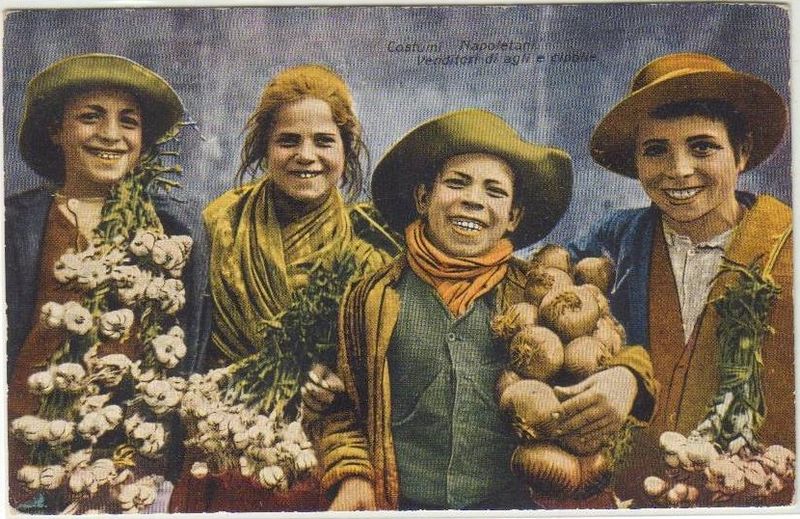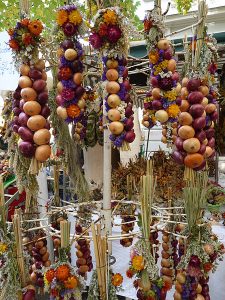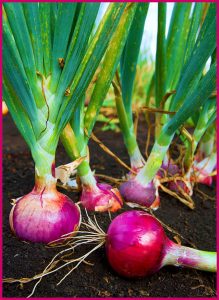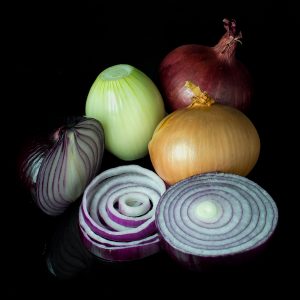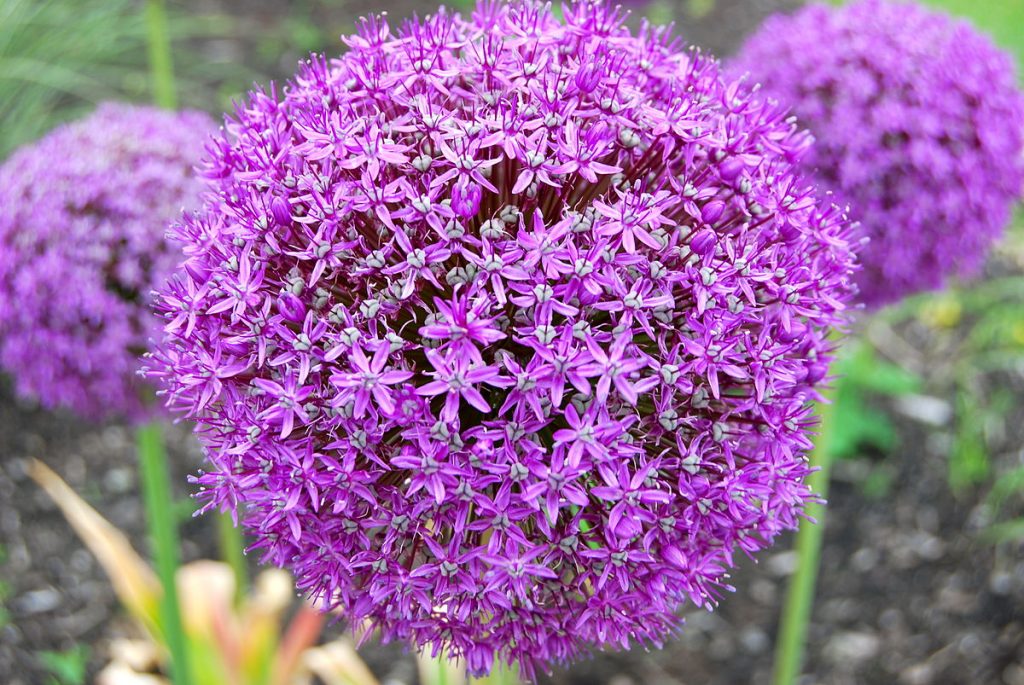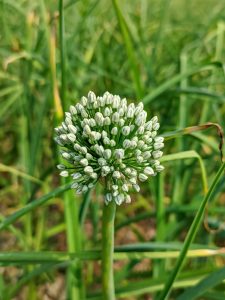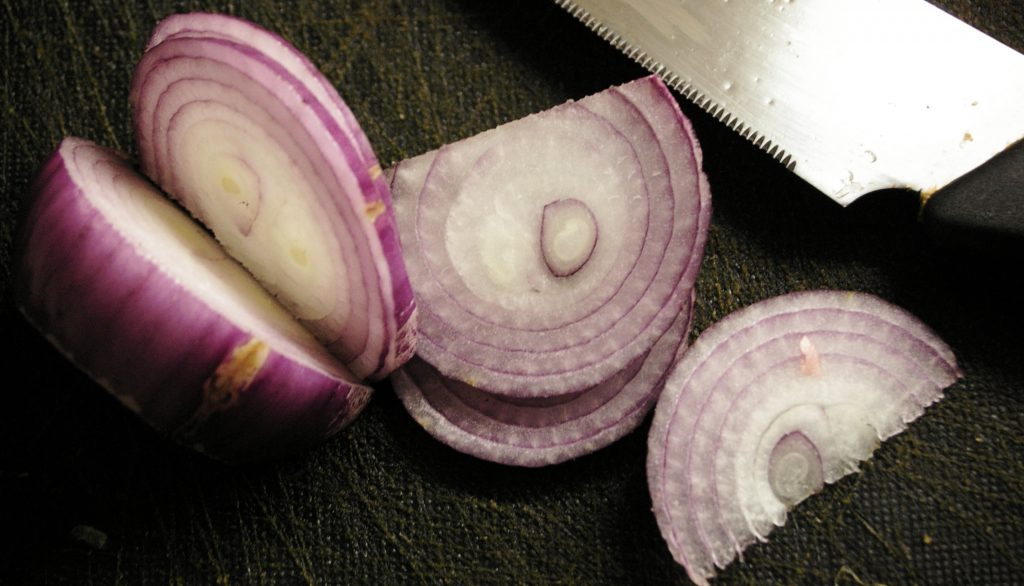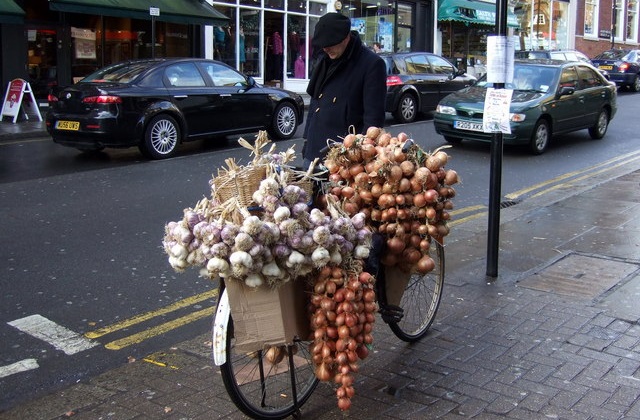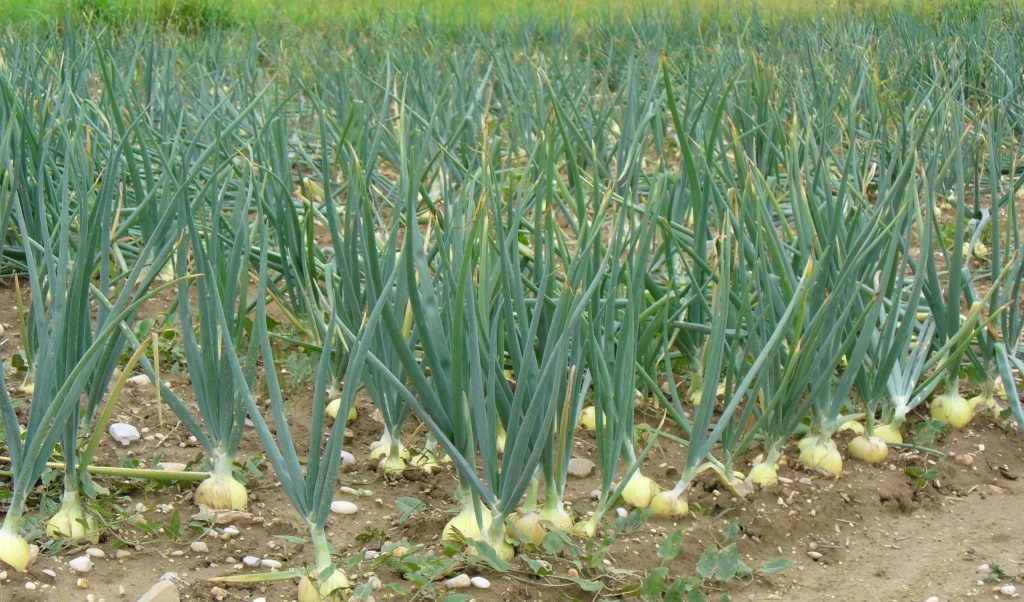They say inspiration comes from everywhere. Interesting details to add to your writing also come from everywhere. To flavor your work, consider the onion.
(For a laugh, consider the satirical new website The Onion, but I’m actually talking about the plant in this instance.)
Onion Lore
There is a vast array of folklore surrounding onions. Onions are part of nearly every cuisine around the world, so nearly every culture has found uses for onions beyond cooking.
- If you stick pins into a small onion and keep it on your windowsill, it dispels bad spirits from your home—or so says folklore. (Garlic has been used for the same purpose.)
- Onions are also thought to ward off snakes and witches.
- American colonists hung onions outside their doors to deflect evil spirits and keep them from coming inside.
- If you throw onion peels on the floor, you’ll throw away your luck.
- In many prehistoric societies, onions were the symbol of eternity, fit only for the gods. Additional symbolism includes protection, memories, jealousy, envy, divine healing, and mood swings.
- Onions in dreams may represent the layers the dreamer needs to get through to find the source of a problem or issue. Alternatively, the dreamer may need to cleanse something in order to start afresh.
- Put an onion under your pillow if you wish to dream the identity of your future lover.
- In Egypt, an onion held in the right hand was a sign of fealty, used to swear allegiance to Cleopatra, and were a farewell offering carved into Tutankhamen’s tomb. They have been found in the pelvic region of mummies, in the thorax, and flattened against the ears. In 1160 BCE, King Ramses IV was entombed with onions in his eye sockets.
- In other cultures, onions were associated with the devil. In Persia, it was said that when Satan was banished from paradise, onions sprang from the print of his right foot.
- Romans believed that eating onions increased the quantity and vitality of sperm. Some Middle Eastern cultures considered onions an aphrodisiac.
- In England, onions predicted the weather: a thick skin meant a bad winder ahead, a thin skin, a mild one.
- Schoolboys used to believe that rubbing their bottoms with onion juice would numb them to the sting of disciplinary caning.
- If you want to make a wish on Friday morning, sprinkle salt and pepper on an onion skin and toss it into the fire while thinking the wish. Other days or times? Who knows?
- When undecided about something important, scratch each option on a different onion and store them in the dark. The first one to sprout reveals your best choice. This applies to choosing one’s lover/husband as well!
- In English-speaking countries, some people believe that putting onions under the bed of a sick person aids recovery.
- Stringing onions up around the house, especially at the entrance will guard against illness, accidents, and curses.
- Put a slice of onion under the doormat to keep away unwanted visitors.
- If onions sprout in your kitchen, plant them. If they grow, you will come into unexpected money.
- The cut side of an onion has been used to relieve the effects of insect stings, and to draw poison from the bites of venomous snakes and rabid dogs.
- Snakes hate the smell of onions, so carry one when you walk in snake territory to ward them off.
- Get rid of warts by rubbing the edge of an onion on the warts and then throw the onion over your right shoulder without looking back.
- Onion juice provides extra sulfur which can support strong, thick hair, thus preventing hair loss and promoting hair growth. The sulfur from onions may help collagen production which, in turn, promotes healthy skin.
Onion Medicine
Folk medicine often contains a kernel of truth, and onion medicine is no different. Modern medical researchers study onions’ palliative properties for everything from high blood pressure to cholesterol levels.
- Because eating onions causes one to perspire, they’ve been used in folk medicine to cure colds.
- Onions are low in calories yet high in nutrients, including vitamin C, B vitamins, and potassium.
- Research shows that eating onions help reduce heart disease risk factors, such as high blood pressure, elevated triglyceride levels, and inflammation.
- Red onions are rich in anthocyanins, which are powerful plant pigments that may protect against heart disease, certain cancers, and diabetes.
- Onion consumption is associated with improved bone mineral density.
- Onions are a rich source of prebiotics, which help boost digestive health, improve bacterial balance in your gut, and benefit your immune system.
- Onions have been shown to inhibit the growth of potentially harmful bacteria like E. coli and S. aureus.
- Onion juice can cure colds, cough, high fever, and sore throat. (One might want to eat parsley to combat onion-breath!)
Onion Facts
Even without their miraculous fortune-telling powers or magical healing properties, onions are pretty nifty vegetables!
- Most people cut onions before eating them, often tearfully. Chilling peeled, halved onions in the fridge or in a bowl of ice water for 30 minutes can lessen the onion tear production.
- FYI: onion tears are chemically different from tears caused by pain or sadness.
- No one knows for sure where onions first appeared. Some believe they originated in Central Asia; other say onions were first grown in Iran and West Pakistan. But onions were surely eaten long before they were cultivated, and now they are grown in 135 countries.
- When Europeans came to the New World, they brought onions with them, only to find that Native Americans were using wild onions for food, in syrups, as poultices, as an incident in dyes, and as toys!
- Worldwide, people consume and average of 11 pounds of onions per year, but onion eating varies widely by geography. Turkey has the highest consumption, with 80.7 pounds per capita per year. In the US, the figure is 18.6 pounds per person per year.
- WARNING: all parts of onions (and related plants, like garlic) are toxic to dogs and cats! Raw or cooked, as little as 1/4 cup can make a 20-pound dog sick.
If that’s not enough onion-y brain fodder, check out the National Onion Association, the Encyclopedia Britannica, The Old Farmer’s Almanac, and the story of The Oldest Onion in Denmark.
I like learning when I read, and I try to include bits of lesser-known information in my stories. For example, gasoline cost ten cents a gallon during the Great Depression, and around the time of the Civil War, the census’s listed the occupation of prostitutes as seamstresses.
Bottom line: Consider adding a little onion to your writing!
